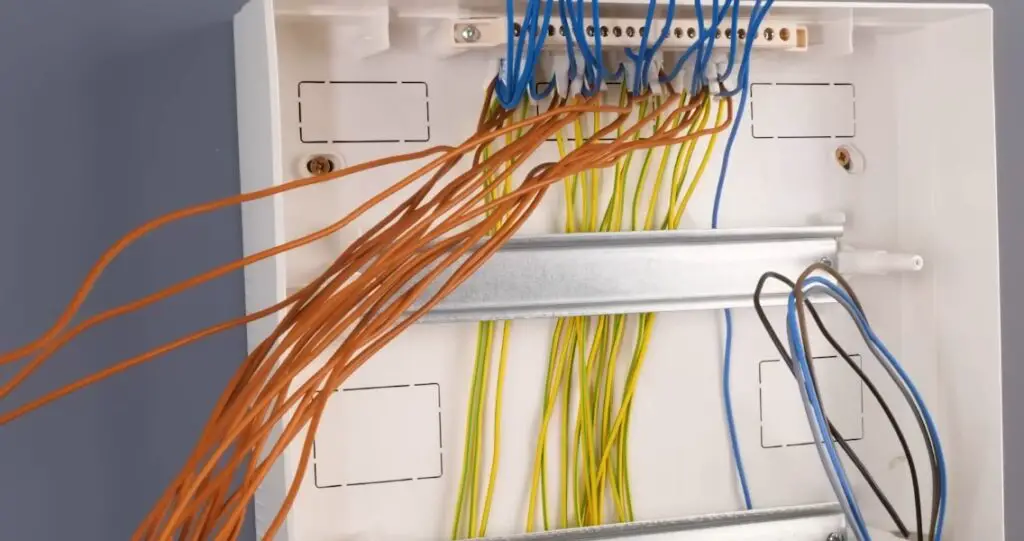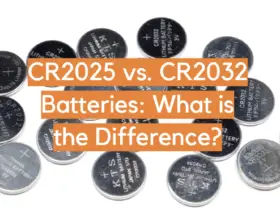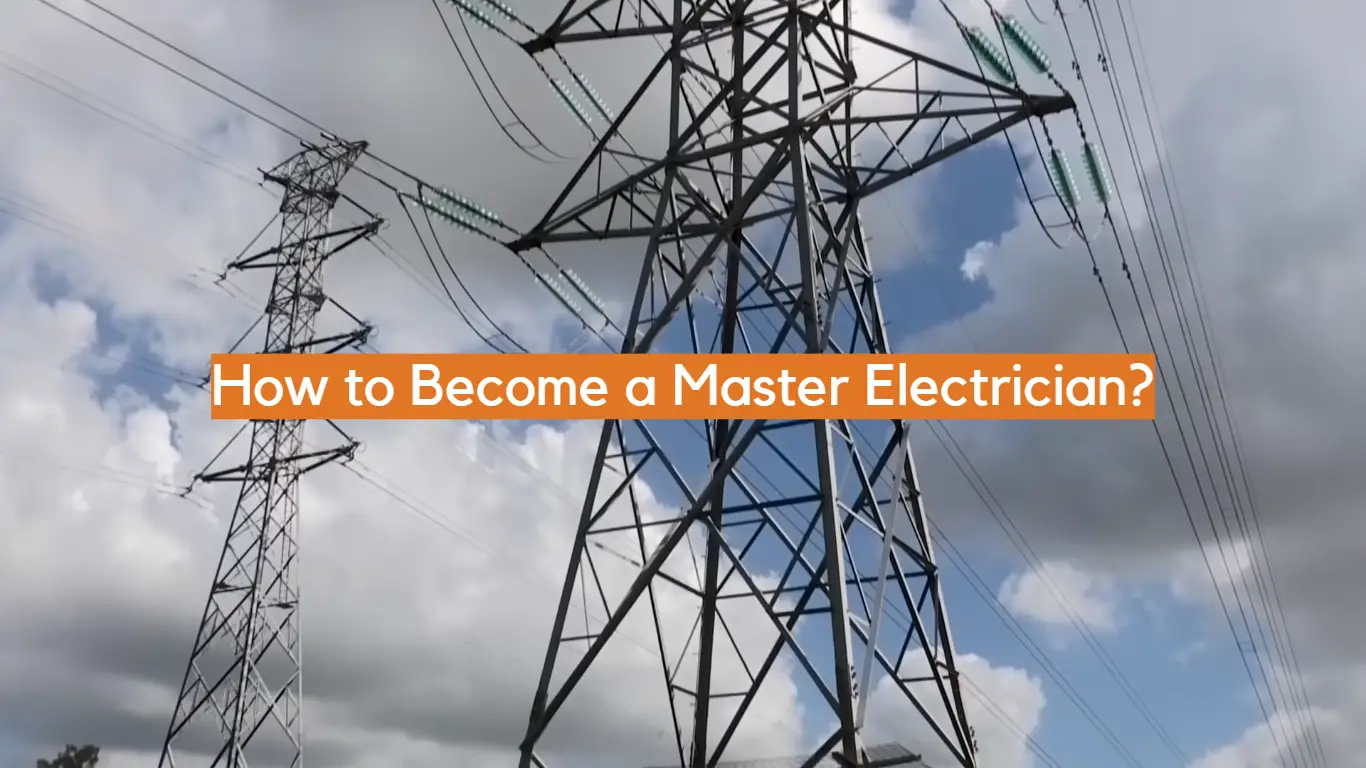Are you interested in pursuing a career as an electrician? Have you ever dreamed of becoming a master electrician, using your skills to oversee projects and manage technical staff? Well it’s possible! Becoming a master electrician requires both knowledge and experience. In this blog post, we will look at the steps required for success in such a role: from obtaining the relevant certifications and credentials, to staying up-to-date with developments within the industry. By following these steps, you can make progress towards achieving your goal of becoming a master electrician. So read on to learn more – let’s get started!
What Is a Master Electrician?

The job of a master electrician can involve anything from wiring homes to large commercial installations, such as factories or hospitals. They may also be responsible for conducting inspections and tests on existing systems to ensure they meet safety regulations.
How to Become a Master Electrician?
1. Obtain the Relevant Qualifications
To become a master electrician, you will need to have obtained the appropriate qualifications. These can be completed through either an accredited vocational school or college program. Depending on which state you live in, you may also require an apprenticeship before becoming licensed.
2. Build up Your Experience
Having the relevant qualifications is essential, but it’s also important to have plenty of experience too. The more experience you can get in the field (such as through internships or working part-time) will make your credentials far more impressive. [1]
3. Keep Up-to-Date with Industry Developments
Just because you have passed the Master Electrician exam and received your license, it does not mean that you should stop learning. There are always new developments in the electrical industry, and as a Master Electrician, it is important to stay abreast of them. Continuing education classes or seminars offer an excellent way to ensure that you remain up-to-date with new technologies and innovations related to electrical work. Additionally, staying informed on local building codes and regulations will help prevent mistakes so common among inexperienced electricians.
4. Consider Becoming a Certified Master Electrician
For Master Electricians who are looking for even more career advancement and recognition, the National Electrical Contractors Association (NECA) offers a Certified Master Electrician certification. The CME certification is an advanced credential that requires extensive knowledge of electrical design, installation, and maintenance. Earning this certification may increase your marketability in the industry and give you greater access to higher-level positions.

5. Take an Electrical Exam and Get Licensed
To become a licensed Master Electrician, you must take an exam that tests your knowledge of electrical theory and safety regulations. Depending on the state, this may be either a local or national exam. After successful completion of the exam, you will receive your Master Electrician license and be able to work in that respective state.
Benefits of Becoming a Master Electrician
Becoming a master electrician can open up several career opportunities and provide many potential benefits. One of the main advantages of becoming a master electrician is that it can lead to higher wages, better job security, and other great benefits. Here are some of the other benefits you may encounter with this career path:
- Job Stability: With an advanced level certification like a Master Electrician, you have more job security than your counterparts without such credentials. This is because hiring managers know they’re getting someone who not only has the technical knowledge but also understands the industry standards and regulations necessary for any complex electrical installations.
- Increased Earning Potential: Certified master electricians typically earn higher than those without these credentials. In addition, you may be able to command higher wages when working for a specific company or contractor. [2]
- Increased Benefits: Electricians with master level credentials sometimes have access to better benefits than electricians without these certifications. This can include health insurance, paid vacation time, and other great perks.
- Job Satisfaction: You’ll likely find greater job satisfaction as a master electrician because of the knowledge that comes with being an expert in this field. You’ll also be able to help others through your skills and know-how.
Overall, becoming a master electrician is a great way to increase your earning potential and open up more career opportunities. With this certification behind you, you can boost your resume and get the recognition you deserve.

Drawbacks of Becoming a Master Electrician
Becoming a master electrician is no easy task. Earning the title requires years of formal training and on-the-job experience, as well as passing rigorous exams to prove competency in the field. While this level of qualification offers many benefits, it also comes with certain drawbacks. The most significant downside to becoming a master electrician is the amount of money and time needed for certification.
In order to become certified, applicants must complete several hours of classroom instruction that can be expensive depending on where they seek their training. Additionally, comprehensive textbooks and study materials are often necessary for those taking the exam as well as any other required classes or tests that vary from state to state.
The cost of obtaining proper licensing also varies from jurisdiction to jurisdiction. In some cities and states, master electricians must pay a flat fee for the license as well as annual renewal fees. Furthermore, in order to stay in good standing with licensing boards, many jurisdictions require that master electricians complete a certain amount of continuing education credits each year. These can be expensive and time consuming.
Finally, there is always a risk involved with working as an electrical contractor or service technician at any level of qualification. Electricians often work in hazardous conditions and must take special safety precautions to protect themselves from shocks and other injuries while on the job. At the same time, they are responsible for making sure their clients’ homes and businesses remain compliant with local laws regarding electrical systems installation or maintenance.
The potential risks and rewards of becoming a master electrician must be weighed carefully before jumping into the profession. While the certification process may seem daunting, it offers many long-term benefits that make it well worth the effort. With proper training, dedication, and knowledge, master electricians can enjoy a successful career in this demanding but rewarding field.
Skills Needed
To become a master electrician, you must have extensive knowledge of electrical systems and components. This includes having an excellent understanding of complex electronics, wiring diagrams, circuit board repair and troubleshooting techniques. You should also have experience working with digital control systems, transformers and other related equipment.

Education Requirements
Various levels of educational requirements may be necessary depending on where you live or what type of company you work for as a master electrician. Generally speaking though, most states require that you possess a high school diploma or equivalent as well as completion of a four-year electrical apprenticeship program. Certification or licensure requirements may also be necessary in order to work legally and safely as an electrician. [3]
Gaining Experience
To gain the experience needed for master electrician status, it is essential that you complete an apprenticeship program at either the state or local level. Apprenticeships allow you to learn valuable skills while working directly with experienced professionals who can help guide your training and development. Working for larger companies often offer more comprehensive education programs that focus on specialized areas such as engineering systems, construction safety, code compliance and project management.
Continued Training
Once certified, master electricians must stay up to date on changes to local and national regulations, safety standards and electrical codes. Ongoing training is often required for certain positions, so you may need to complete additional online courses or attend workshops in order to remain certified. You may also need to pass periodic exams in order to renew your certification and keep your license up-to-date.
Working as a Master Electrician
As a master electrician, you will be responsible for ensuring that any electrical work meets code requirements and is completed safely and efficiently. This could involve installation of wiring systems, repairing faulty equipment or fixtures, following complex schematics or troubleshooting power loss problems. Depending on the job you have chosen, you may also be involved in designing new electrical systems for commercial projects or industrial facilities.

What Are the Duties?
The primary duties of a masterian include planning, installing and maintaining electrical systems. They must be able to read technical drawings and blueprints in order to correctly install wiring, circuits, electrical panels and other components. Additionally, they also have to inspect existing work for compliance with the National Electrical Code and local regulations. Master electricians are also responsible for troubleshooting faulty wiring or equipment and recommending solutions. Finally, they may need to provide instruction or guidance to inexperienced apprentices on the proper installation of equipment. [4]
In addition to their technical skills, master electricians should possess good communication abilities in order to effectively manage projects as well as coordinate with other contractors or subcontractors when necessary. Lastly, they need strong problem-solving skills in order to diagnose and resolve complex electrical issues.
Ultimately, the goal of every master electrician is to ensure safe and efficient operation of all electrical systems in a variety of locations. Their skillset must be extensive enough to cover both residential and commercial settings, as well as marine and industrial installations. This makes them an invaluable asset in the construction industry.
With sufficient experience, certification can open even more job opportunities such as supervisor or manager roles within a company. Therefore becoming a master electrician is not just beneficial for career growth but also provides good financial prospects.
Salary Factors
Becoming a master electrician can pay off in terms of salary. The Bureau of Labor Statistics states that the median annual wage for electricians was $55,190 in May 2019. Factors such as experience and location may affect how much one earns. For example, those with more experience may earn higher wages, while an electrician living in an area with higher costs of living might demand a higher salary than one who lives in a more rural area. [5]
Additionally, the type of employer – whether it’s private or public sector – will also influence salary level. Those working in the public sector often enjoy health benefits and other perks associated with their employment.
No matter what job they take on as a master electrician, they are likely to enjoy more opportunities and better pay than someone without the same qualifications. With hard work, dedication, and a commitment to staying up-to-date with industry trends, becoming a master electrician can be rewarding in terms of salary.
Is This Job In Demand?
In addition, master electricians can find employment opportunities as teachers of electrical engineering courses or upper-level technicians at large companies. With an ever increasing demand for reliable electricity sources around the globe, qualified master electricians who are able to meet these needs will remain in high demand for years to come.

In order to become competitive in this field it is essential that prospective master electricians gain experience working in a variety of areas within the industry such as wiring, conduit installation and repair, installation of electrical equipment, troubleshooting circuits and performing maintenance on electrical systems. Master electricians must also be comfortable working with complex tools and have the knowledge to operate high-voltage machines safely.
Finally, a master electrician should understand local codes and regulations related to the profession in order to stay up-to-date on industry standards.
Overall, becoming a master electrician requires dedication and hard work; however, those who are willing to put in the time can become highly valued members of any organization or business that requires their services. As technology continues to evolve in terms of both efficiency and complexity, those who are able to keep up with these advancements will remain invaluable assets for many years to come. [6]
FAQ
What is the highest pay for a master electrician?
The highest pay for a master electrician varies by region and employer, but according to the Bureau of Labor Statistics (BLS), the median annual wage for electricians in May 2018 was $55,190. Electricians at the top 10 percent earned more than $90,370 annually.
What education and training do I need?
To become a master electrician, you must complete an apprenticeship program or on-the-job training in addition to obtaining a journeyman’s license. After that, you will need to take additional courses related to electrical engineering, safety codes and other topics to earn your master electrician certification from your state or local municipality. This may include passing a written exam as well as completing a hands-on project. You may also need to complete continuing education courses every few years in order to maintain your certification and stay up-to-date on the latest changes to electrical codes and safety rules. Once you are certified as a master electrician, you will be able to work independently without supervision or hire a team of electricians of your own. You can then apply for higher paying positions in commercial and industrial settings, supervise large construction projects or even start your own business. With the right knowledge and experience, becoming a master electrician can lead to a lucrative career that is always in demand.
How do I become a master electrician in Canada?
To become a master electrician in Canada, you must first complete apprenticeship training. This usually consists of 8,000 hours of paid supervised work experience and technical classes. You will need to be employed by a qualified licensed electrical contractor who can provide the necessary supervision for your apprenticeship training. Once the apprenticeship is completed, you must pass an examination administered by your province’s governing body. Upon successful completion of the exam, you will be issued with a master electrician license which allows you to practice your trade without further restrictions.
You may also need to obtain additional certifications or qualifications depending on the specific regulations in your province such as Power Limited Technician Certification or Electrical Code Knowledge Examination Certificate etc. It’s important to research the licensing requirements of your province.
Finally, you will need to adhere to all safety regulations and keep up-to-date with any changes in electrical codes or industry standards. It is important to stay informed and maintain your license through continuing education courses or attending workshops. With dedication, commitment and hard work, you can become a master electrician in Canada!
How do I become a master electrician in New York?
In order to become a master electrician in New York, you’ll need to complete the following steps:
- Complete an approved apprenticeship program. This must include a minimum of 8,000 hours of on-the-job training and 1,000 hours of classroom education from a school or college that is approved by the New York State Department of Labor.
- Pass the Electrical Licensing Exam administered by the New York State Department of Labor. In addition to passing the exam, applicants must have at least two years’ experience as an electrician before they can obtain their license.
- Obtain a certificate from the Board of Fire Underwriters signifying completion of all necessary requirements for becoming a Master Electrician.
- Maintain your license by completing continuing education courses and renewing it annually with the New York State Department of Labor.
Once you have completed these steps, you will be able to work as a Master Electrician in New York and earn an excellent salary while doing so!
What is a master electrician?
A master electrician is a skilled professional who designs, installs, repairs and maintains electrical systems. Master electricians are often responsible for ensuring the safety of the work environment and making sure all regulations are followed. To become a master electrician, one must typically complete an approved apprenticeship program and pass a licensing exam in their state or region.
To start an apprenticeship program, most states require students to have at least two years of vocational experience in electrical technology (high school classes can count toward this requirement). Additionally, they must possess excellent problem-solving skills and be able to read blueprints. To gain acceptance into an apprenticeship program, applicants may also need to submit letters of recommendation from previous employers as well as documentation showing that they have completed relevant coursework.
Do you need a license to be an electrician in NYC?
Yes, you need to have a valid license from the Department of Buildings (DOB) in order to work as an electrician in NYC. You will need to pass both a written and practical exam to obtain your license. After obtaining your license, you can begin the process of becoming a master electrician.
To become a master electrician in NYC, you must first complete four years of electrical work experience under the supervision of licensed Journeyman Electricians or Master Electricians. This experience should include installing wiring systems, troubleshooting problems, creating diagrams and blueprints for new projects, and other duties related to electrical work.
How long does it take to get an electrician license in NYC?
It usually takes about 3 to 4 months to get a license to work as an electrician in NYC. The process includes passing both written and practical exams, providing documentation of your electrical experience, and paying the appropriate fees. Once you have completed all the necessary steps, your license will be issued.
Once you have obtained your license, you can start the process of becoming a master electrician. You must complete four years of electrical work experience under the supervision of licensed Journeyman Electricians or Master Electricians. This experience should include installing wiring systems, troubleshooting problems, creating diagrams and blueprints for new projects, and other duties related to electrical work. After completing these requirements, you will need to file an application with DOB in order to obtain your Master Electrician license. The application must include proof that you meet all the necessary qualifications as well as any additional documentation requested by DOB. Once approved, your license will be issued and you can officially call yourself a master electrician in NYC.
Useful Video: How to Become a Master Electrician and Operate an Electrical Service Company
Conclusion
Becoming a master electrician is no small feat. It requires completing an apprenticeship, passing rigorous exams and obtaining a state license. For those looking to pursue this highly rewarding career path, the process can be challenging but ultimately worth it in the end. With proper training, dedication and hard work anyone can become a master electrician and enjoy a successful career in the field of electrical engineering.
Good luck!
References
- https://www.indeed.com/career-advice/finding-a-job/how-to-become-master-electrician
- https://www.wikihow.com/Become-Master-Electrician
- https://www.myelectriccareer.com/how-become-master-electrician
- https://esasafe.com/contractors/get-your-licence/
- https://www.rsi.edu/blog/skilled-trades/how-to-become-a-master-electrician/
- https://work.chron.com/become-master-electrician-13517.html











Leave a Reply